DELIAH has a broad approach, acknowledging the multifaceted nature of humour. The project is divided into what in EU jargon are called Work Packages (WP). The WPs are smaller research projects that focus on different forms of humour and research questions. DELIAH has eight such WPs:
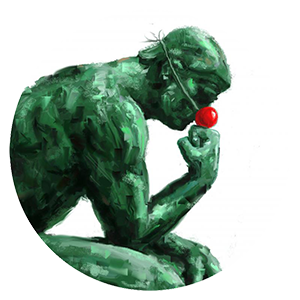
WP 1 – Meta-analysis of humour practices and democratic attitudes in the European context
Our starting point sounds academic, but our meta-analysis will provide a solid base for the rest of the project. What is already known about the relationship between democracy and humour and how can we build on this?
The outcome will be a public database (mainly aimed at scientists) and a summary report. The report will also serve scientists, but we also plan to make the conclusions accessible in an engaging way for a broader audience.
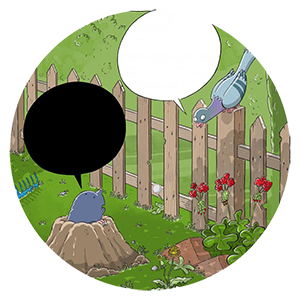
WP 2 – Conducting focus groups to discover discourses of and evaluate responses to humorous stimuli
One way to build upon WP1 will be a hands-on examination of how Europeans in different countries respond to humour. We will set up focus-groups in different countries and show each group the same, or similar (because some humour is often language or country-specific), examples of different types of humour to see how they react, before discussing these examples with them. The resulting report should provide valuable insights into how Europeans look at humour.
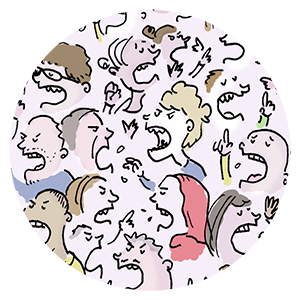
WP 3 – Disparaging humour and democracy: Best practices for free speech jurisprudence and content moderation
Disparaging humour, meaning humour that mocks and belittles vulnerable individuals and groups, is often at the center of complex legal cases, where judges have to draw a line between safeguarding freedom of expression on the one hand, and countering incitement to discrimination or violence on the other. Besides, social media platforms and content moderators often struggle to find a balanced approach to jokes or memes that might be considered harmful or discriminatory by some users.
How can courts and online platforms ensure that humor (including provocative or potentially offensive jokes) is preserved as a vital component of democratic debate, while at the same time protecting the rights of targeted communities? What options are available to foster democratic participation, beyond the mere decision to remove content or keep it online? In light of both human rights law and humor research, this WP will create a toolkit helping judges and online platforms develop a fair and consistent approach to disputed humorous material.

WP 4 – Analysing the rhetoric of far-right: humour online and the role of democratic literacy
How does the far-right use humour and do they use forms of humour that undermine democracy or that compromise the democratic attitudes of EU citizens? Democratic literacy refers to our overall ability in Europe to recognize threats to democracy. How can we bolster democracy to withstand harmful humour?
This WP will result in a toolkit on how to increase democratic literacy that can be used by educators and by organizations active in the field of democracy and free speech. We’ll also write policy recommendations for educators, policymakers and social media companies.
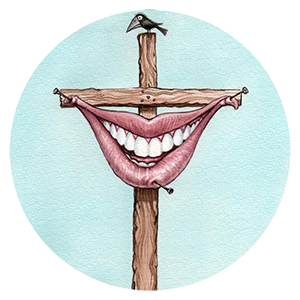
WP 5 – Understanding laughter scandals to create conceptual and translational tools for democracies
In recent years, there have been many controversies involving cartoons, satirical writings and other forms of humour. This WP attempts to map what we call laughter scandals, both those that take place on a national level and international ones, to see if we can discern common trends among them. In the international context, this WP focuses on how scandals are created when humour gets taken out of its (national) context.
Our findings will be used to create a toolkit for educators and to write a white paper for policy makers on how to address such controversies.

WP 6 – Analysing humour and fostering democratic participation in times of conflict
Using two case studies, the ongoing war in Ukraine and the formation of a new, populist government in Slovakia following the September 2023 elections, this WP aims to identify strategies of humour in cases where citizens confront political disinformation and anti-democratic propaganda. What role can humour play in enhancing democracy and civic participation?
Our goal is to formulate policy recommendations around humour practices in relation to disinformation, anti-democratic propaganda and civic participation.
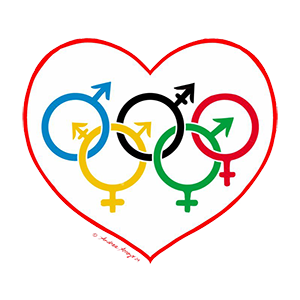
WP 7 – Analysing gender and stand-up comedy in the 21st-century Anglophone world, online and offline
This WP will research how female and non-cisgender comedians have carved out new spaces for and forms of stand-up comedy in the 21st century, and how this has facilitated humorous forms of informal democratic participation by creating spaces for free and alternative forms of speech, societal critique and self-reflection.
This WP will result in a database of relevant comedians working today (which will be restricted to use by request, due to its sensitive nature), a bibliography of current research into stand-up comedy and gender, and a white paper outlining how such stand-up comedy has contributed to informal kinds of democratic speech and participation.

WP 8 – Analysing uses of ‘counter-humour’ in media education and activism
The online realm is, unfortunately, full of people that threaten, bully and exhibit other forms of toxic behavior. How can we use humour to effectively counter harassment and anti-democratic behaviour in the digital domain?
Our goal is to develop potential humour intervention strategies, with attention to particularly vulnerable social groups (e.g., girls ands LGBTQ+ youth), in close collaboration with civil society initiatives and media education organizations.
As the project progresses, we’ll provide more in-depth coverage of the different topics and we will of course share all the outcomes, make them accessible and/or available for download.
If you have any questions or requests related to the DELIAH project, please contact us at info@deliah.eu
Images by MORO, Engin Selcuk, Moz, Rahma Cartoons, Halit Kurtulmus Aytosly, George Riemann, Andrea Arroyo and Marilena Nardi